On behalf of the 2019 European Ada Awards jury and under the esteemed patronage of of Ms. Mariya Gabriel, European Commissioner for the Digital Economy and Society, the Digital Leadership Institute and its partners are thrilled to announce the finalists of the 2019 European Ada Awards !
2019 European Digital Woman of the Year™ Award Finalists:
Nadia Aimé (Belgium)
 Once homeless and a school dropout herself, Nadia’s work focuses on improving the lives of vulnerable groups, through education and creating more interest and enthusiasm surrounding careers within entrepreneurship and the digital sector. Today, she is an avid technologist social/tech entrepreneur, educator, a single mom, and studying cyber-security who seeks to help people evolve in a fast-paced world of technology and business. Nadia’s passion for sharing knowledge and constant learning, most especially improving her tech skills which she hones, birthed She Leads Digital, which is a Brussels based tech organization, aims at providing programs and initiatives that foster enthusiasm and encourage women and youth to pursue careers in science, technology, engineering, and math fields.
Once homeless and a school dropout herself, Nadia’s work focuses on improving the lives of vulnerable groups, through education and creating more interest and enthusiasm surrounding careers within entrepreneurship and the digital sector. Today, she is an avid technologist social/tech entrepreneur, educator, a single mom, and studying cyber-security who seeks to help people evolve in a fast-paced world of technology and business. Nadia’s passion for sharing knowledge and constant learning, most especially improving her tech skills which she hones, birthed She Leads Digital, which is a Brussels based tech organization, aims at providing programs and initiatives that foster enthusiasm and encourage women and youth to pursue careers in science, technology, engineering, and math fields.
Dee Saigal (United Kingdom)
 Dee Saigal is the Founder, CEO & Creative Director of Erase All Kittens – an adventure game designed to give girls the confidence to code, whilst teaching digital and 21st Century skills. Like many women, Dee grew up believing that careers in technology were more for boys, which is why it took her years to follow her dream of getting into game design – and why she founded EAK. She and her team spent 12 months interviewing hundreds of students before designing their product, in order to create a coding tool that girls genuinely love. EAK has 150,000 players in over 100 countries, and 95% of girls want to learn more about coding after playing. Dee’s goal is for EAK to transform the way that children perceive coding and engineering, and to empower millions of girls worldwide with transferable, digital skills.
Dee Saigal is the Founder, CEO & Creative Director of Erase All Kittens – an adventure game designed to give girls the confidence to code, whilst teaching digital and 21st Century skills. Like many women, Dee grew up believing that careers in technology were more for boys, which is why it took her years to follow her dream of getting into game design – and why she founded EAK. She and her team spent 12 months interviewing hundreds of students before designing their product, in order to create a coding tool that girls genuinely love. EAK has 150,000 players in over 100 countries, and 95% of girls want to learn more about coding after playing. Dee’s goal is for EAK to transform the way that children perceive coding and engineering, and to empower millions of girls worldwide with transferable, digital skills.
Eva Meyer de Stadelhofen (France)
 Eva is the 21 year old founder of GirlCode, an international nonprofit who aims to reduce the gender gap in the STEM industry by offering free coding lessons to girls of age 7 to 17 in their schools. She also created a mentorship program through which GirlCode students can meet entrepreneurs, scientists, and all-around girl bosses in order to help them find their STEM superstar. GirlCode, which started as a small club, has rapidly grown these last two years into a worldwide “sisterhood of nerds”, with 304 clubs in 25 different countries and an estimated impact of 81’345 girls as of September 2019. Thanks to her work with her organisation, Eva has recently been chosen by Global Changemakers and the Thomas Reuters Foundation to attend their summits as one of the best entrepreneurs worldwide.
Eva is the 21 year old founder of GirlCode, an international nonprofit who aims to reduce the gender gap in the STEM industry by offering free coding lessons to girls of age 7 to 17 in their schools. She also created a mentorship program through which GirlCode students can meet entrepreneurs, scientists, and all-around girl bosses in order to help them find their STEM superstar. GirlCode, which started as a small club, has rapidly grown these last two years into a worldwide “sisterhood of nerds”, with 304 clubs in 25 different countries and an estimated impact of 81’345 girls as of September 2019. Thanks to her work with her organisation, Eva has recently been chosen by Global Changemakers and the Thomas Reuters Foundation to attend their summits as one of the best entrepreneurs worldwide.
2019 European Digital Girl of the Year™ Award Finalists:
Tayra from Bulgaria (10 year old and under category)
 Tayra is 10 years old and was born and lives in Sofia. Besides the gift of learning foreign languages (at the age of 8 she speaks some German, English, Chinese and Turkish), Tayra has another talent in the field of modern computer technologies. At the age of 8 Tayra participated in the IT Znayko award contest and won a prize for an original idea and, as a member of the Coder Dojo club, won an award from the Bulgarian version of Coolest Projects Sofia 2017. The great victory comes in Dublin, Ireland, at the international competition Coolest Project 2017 involving more than 1,000 children from 17 countries. She won in the Scratch category at Coolest Projects 2017, when she is only 8 years old with her awesome project ABCD Code, which is a Scratch game developed to help children learn about healthy eating and the benefits of fruit and vegetables with the help of Makey Makey. The Healthy Eating project in English and Bulgarian version also became involved in the kindergarten process. She personally organizes and participates in workshops. At the age of 9, on 25.03.2018 she won a special prize from the Softuniada Kids (organized by Software University in Sofia, Bulgaria) with an amazing project (scratch project- “Three bears farytail”with the sign language videos for deaf kids).
Tayra is 10 years old and was born and lives in Sofia. Besides the gift of learning foreign languages (at the age of 8 she speaks some German, English, Chinese and Turkish), Tayra has another talent in the field of modern computer technologies. At the age of 8 Tayra participated in the IT Znayko award contest and won a prize for an original idea and, as a member of the Coder Dojo club, won an award from the Bulgarian version of Coolest Projects Sofia 2017. The great victory comes in Dublin, Ireland, at the international competition Coolest Project 2017 involving more than 1,000 children from 17 countries. She won in the Scratch category at Coolest Projects 2017, when she is only 8 years old with her awesome project ABCD Code, which is a Scratch game developed to help children learn about healthy eating and the benefits of fruit and vegetables with the help of Makey Makey. The Healthy Eating project in English and Bulgarian version also became involved in the kindergarten process. She personally organizes and participates in workshops. At the age of 9, on 25.03.2018 she won a special prize from the Softuniada Kids (organized by Software University in Sofia, Bulgaria) with an amazing project (scratch project- “Three bears farytail”with the sign language videos for deaf kids).
Selin from Turkey (11-14 year old category)
 Selin is 13 years old and loves building robots and coding also loves animals and travelling. She started coding when she was 8 years old. Selin won first prize in the Hardware category at Coderdojo’s Coolest Projects International in 2018 with iC4U, her robot guide dog for the visually impaired. She was also a finalist in the Open Innovation category of the European Youth Awards 2018. In 2019 she received a 100% educational scholarship and attended a Robotic and Engineering summer camp held at Stanford University. She is presently working on the second version of her robot guide dog, the Raspberry Pi version and on a robot that aims to make life easier in schools and hospitals. She is hoping that her robot will help to make children’s stay in hospital a little easier if only to make them smile. She codes in Python language. She is working on integrating image processing, voice control and artificial intelligence assisted dialogue capabilities in her robot project. her aim is to study robotics at MIT or Stanford University and to build a humanoid. Selin speaks English, Turkish and French, she is also learning Python, C++ and Java. She facilitates workshops, mentors her peers and gives presentations at technology related events in order to inspire others especially girls. She lives in Istanbul, Turkey with her mum, dad and dog Bailey.
Selin is 13 years old and loves building robots and coding also loves animals and travelling. She started coding when she was 8 years old. Selin won first prize in the Hardware category at Coderdojo’s Coolest Projects International in 2018 with iC4U, her robot guide dog for the visually impaired. She was also a finalist in the Open Innovation category of the European Youth Awards 2018. In 2019 she received a 100% educational scholarship and attended a Robotic and Engineering summer camp held at Stanford University. She is presently working on the second version of her robot guide dog, the Raspberry Pi version and on a robot that aims to make life easier in schools and hospitals. She is hoping that her robot will help to make children’s stay in hospital a little easier if only to make them smile. She codes in Python language. She is working on integrating image processing, voice control and artificial intelligence assisted dialogue capabilities in her robot project. her aim is to study robotics at MIT or Stanford University and to build a humanoid. Selin speaks English, Turkish and French, she is also learning Python, C++ and Java. She facilitates workshops, mentors her peers and gives presentations at technology related events in order to inspire others especially girls. She lives in Istanbul, Turkey with her mum, dad and dog Bailey.
Anne from Belgium (15-17 year old category)
 Anne Maelbrancke, 15 years old, student at the Bernardustechnicum Oudenaarde, Belgium. Anne has been a member of Coderdojo Belgium since 2014. In 2015 she was confronted with a friend who had to stay at the hospital for quite a long time. She proposed to start an initiative called Clinicoders (facebook.com/clinicoders) to bring technology and programming to children in the hospital. Monthly, together with friend, she animates children patients with programming and robots.
Anne Maelbrancke, 15 years old, student at the Bernardustechnicum Oudenaarde, Belgium. Anne has been a member of Coderdojo Belgium since 2014. In 2015 she was confronted with a friend who had to stay at the hospital for quite a long time. She proposed to start an initiative called Clinicoders (facebook.com/clinicoders) to bring technology and programming to children in the hospital. Monthly, together with friend, she animates children patients with programming and robots.Alai from Spain (15-17 year old category)
 Alai’s passion for STEM began when she was 7 years old. She has experience coding in multiple code languages, and has attended STEM workshops from textile technology to designing and 3D prototyping. In 2019, she was invited to speak at the Amazon Web Services Summit in Madrid to discuss her experience as a girl in technology. Additionally, this past May she was invited by Google to Women TechMakers Alicante to discuss her experience and future projects.
Alai’s passion for STEM began when she was 7 years old. She has experience coding in multiple code languages, and has attended STEM workshops from textile technology to designing and 3D prototyping. In 2019, she was invited to speak at the Amazon Web Services Summit in Madrid to discuss her experience as a girl in technology. Additionally, this past May she was invited by Google to Women TechMakers Alicante to discuss her experience and future projects.
Congratulations to the 2019 Ada Awards finalists and all our nominees for their amazing leadership in digital fields in Europe!
Please join us at the Google Digital Atelier in Brussels on 16 October 2019 for the sixth edition of the European Ada Awards ceremony, where we will announce winners of the 2019 awards, with a special opening address by Commissioner Gabriel and a closing reception. This event is open to the public on a strictly first-come-first-served basis, with pre-registration required.
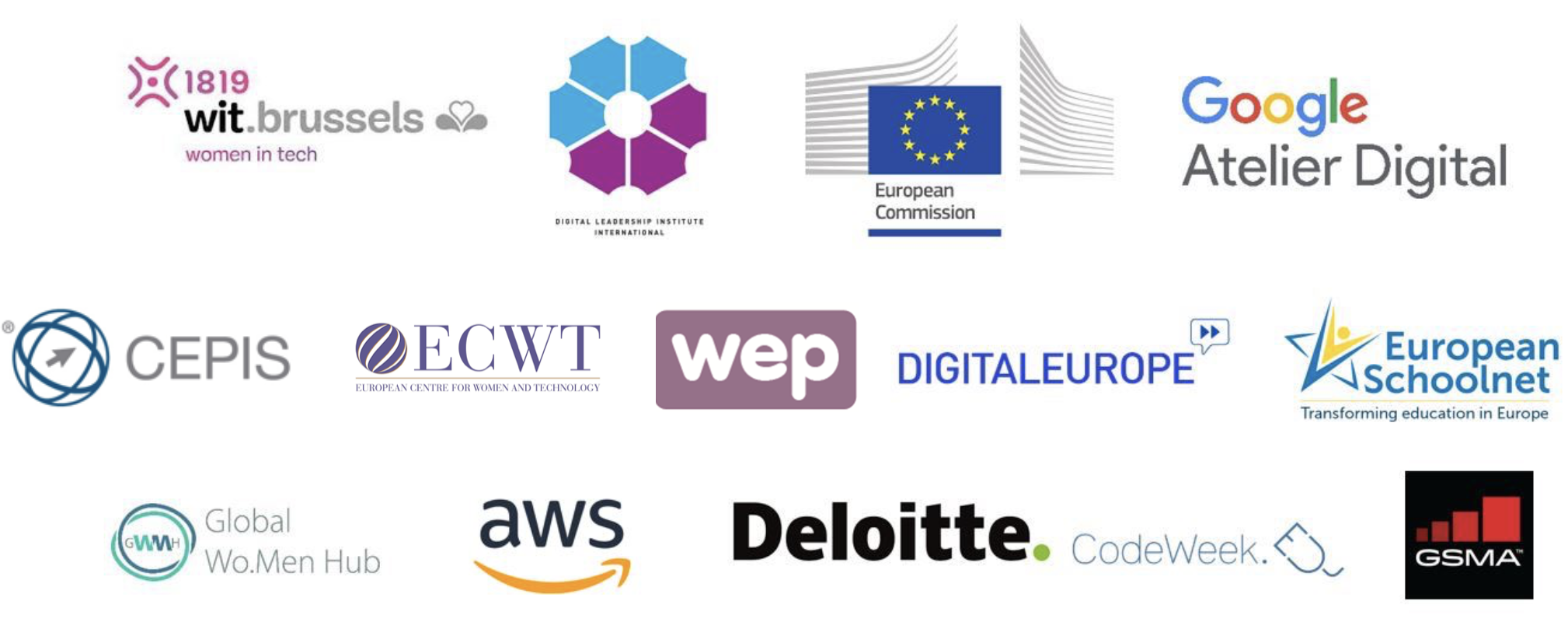




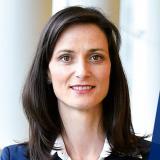
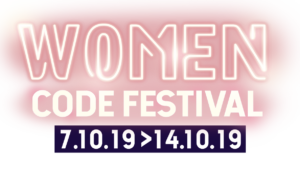

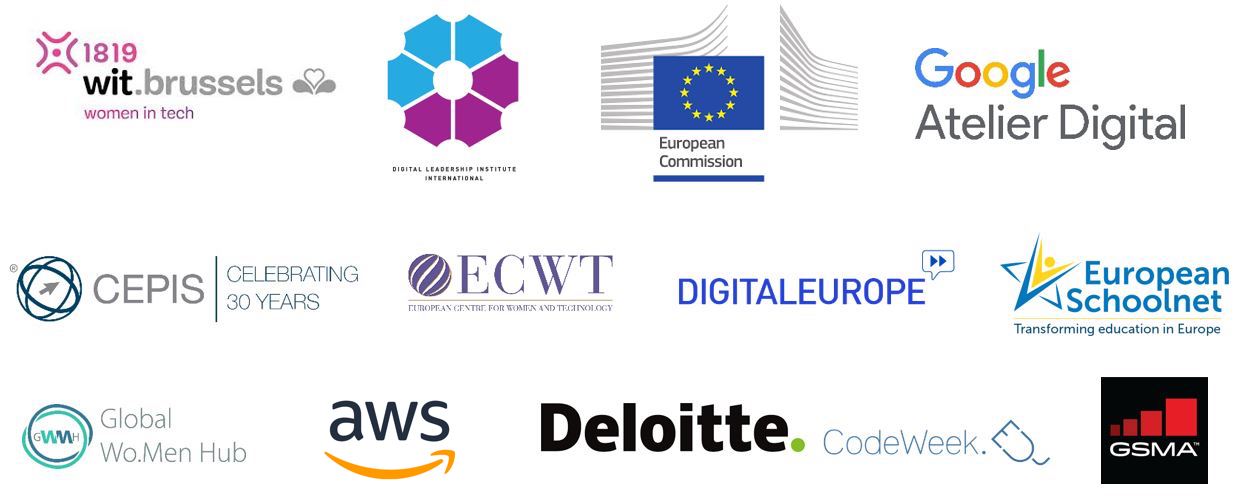

 Cat is a Raspberry Pi Certified Educator, an Apple Distinguished Educator and a Google Certified Teacher. She initiated an event called Coding Evening for Teachers in UK that brings together teachers, coding professionals and tech enthusiasts and allows them to work together to discuss ideas for the classroom. Her independent work has led to her being invited to Brazil to train and speak to a number of Brazilian teachers about the importance of computational thinking and basic computer science skills. She is a role-model for young, female coders and a lot of her outreach work includes working with groups that are actively encouraging girls to get involved with coding, including girls-only CoderDojos in London.
Cat is a Raspberry Pi Certified Educator, an Apple Distinguished Educator and a Google Certified Teacher. She initiated an event called Coding Evening for Teachers in UK that brings together teachers, coding professionals and tech enthusiasts and allows them to work together to discuss ideas for the classroom. Her independent work has led to her being invited to Brazil to train and speak to a number of Brazilian teachers about the importance of computational thinking and basic computer science skills. She is a role-model for young, female coders and a lot of her outreach work includes working with groups that are actively encouraging girls to get involved with coding, including girls-only CoderDojos in London. When she started at Dell, Pascale was the only woman on the local leadership team. Tackling being female leader challenge in a positive way along with the learning experience is what motivated her to start building alliances to raise awareness around gender equality and bring about change. Pascale has been active for years in mentoring young women, speed-dating with students and coaching female entrepreneurs. She is a role model to women thinking about entering a career in the digital world and to those who have started a career within Dell. She regularly “talks the talk” and “walks the walk” regarding the skills needed for a career in tech, at high-level events such as the NATO’s annual cyber symposium NIAS where as a speaker she raised awareness around the need for female talent in cybersecurity along with diversity and inclusion in any future-oriented organization.
When she started at Dell, Pascale was the only woman on the local leadership team. Tackling being female leader challenge in a positive way along with the learning experience is what motivated her to start building alliances to raise awareness around gender equality and bring about change. Pascale has been active for years in mentoring young women, speed-dating with students and coaching female entrepreneurs. She is a role model to women thinking about entering a career in the digital world and to those who have started a career within Dell. She regularly “talks the talk” and “walks the walk” regarding the skills needed for a career in tech, at high-level events such as the NATO’s annual cyber symposium NIAS where as a speaker she raised awareness around the need for female talent in cybersecurity along with diversity and inclusion in any future-oriented organization. Egle inspires people of all ages to take part in the ICT industry through whatever means, despite any boundaries imposed by the society. She continuously shares her experience in breaking the industry’s boundaries through interviews and personal communication. Egle always emphasises that girls should not be afraid of the digital occupations, as she herself has made a successful transfer from a humanitarian background. Egle shares her experience and motivates women to partake in the fields of Computer Science – she has recently joined the Baltic Institute of Advanced Technology, which aims to create, develop and disseminate scientific knowledge and expertise about in the field of technology and innovation.
Egle inspires people of all ages to take part in the ICT industry through whatever means, despite any boundaries imposed by the society. She continuously shares her experience in breaking the industry’s boundaries through interviews and personal communication. Egle always emphasises that girls should not be afraid of the digital occupations, as she herself has made a successful transfer from a humanitarian background. Egle shares her experience and motivates women to partake in the fields of Computer Science – she has recently joined the Baltic Institute of Advanced Technology, which aims to create, develop and disseminate scientific knowledge and expertise about in the field of technology and innovation.

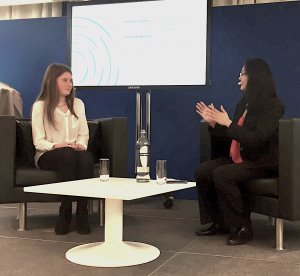
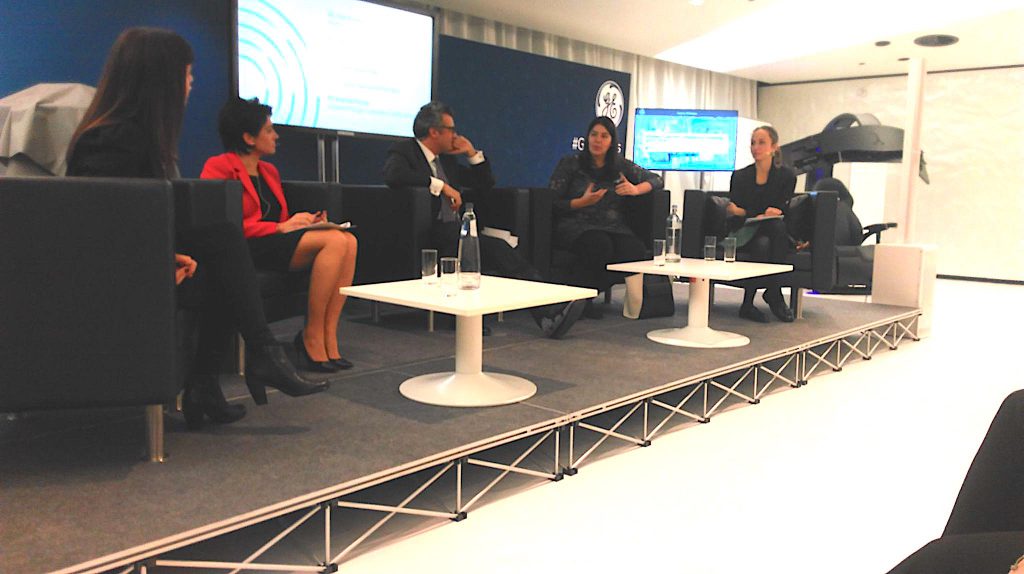
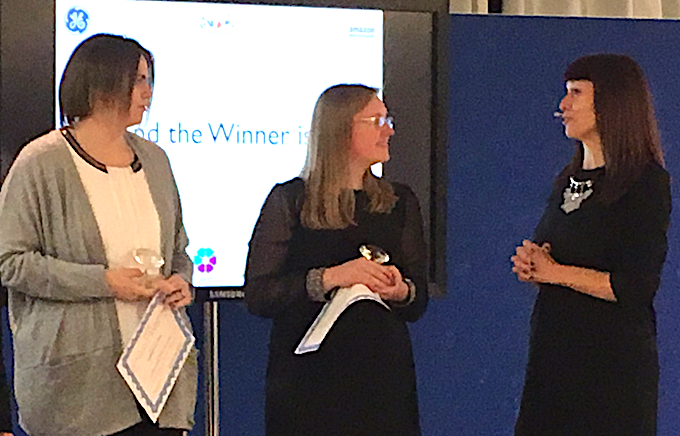

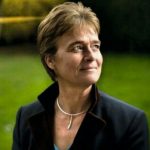 Saskia Van Uffelen has been working in the sector of information and communication technology (ICT) for over 25 years. She has held national and international sales and marketing functions in leading companies such as Xerox, Compaq, HP, Arinso, Bull and CSB Consulting. Thanks to her experience to transform a product driven organization to a provider of services and solutions, Saskia was appointed in 2014 as CEO Belgium and Luxemburg of Ericsson bringing her through the Telecom offer in the heart of the Networked Society.Since 2012, the federal ministry of economic affairs appointed Saskia Van Uffelen as ‘Digital Champion’ for Belgium in support of the mission of the European Commission.
Saskia Van Uffelen has been working in the sector of information and communication technology (ICT) for over 25 years. She has held national and international sales and marketing functions in leading companies such as Xerox, Compaq, HP, Arinso, Bull and CSB Consulting. Thanks to her experience to transform a product driven organization to a provider of services and solutions, Saskia was appointed in 2014 as CEO Belgium and Luxemburg of Ericsson bringing her through the Telecom offer in the heart of the Networked Society.Since 2012, the federal ministry of economic affairs appointed Saskia Van Uffelen as ‘Digital Champion’ for Belgium in support of the mission of the European Commission. Nuria Oliver is a computer scientist and holds a Ph.D. from the
Nuria Oliver is a computer scientist and holds a Ph.D. from the 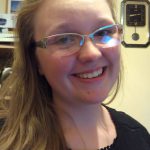 Cerys is a fourteen-year-old who has a passion for technology. Over the past couple of years she has got very involved with Raspberry Pi Computers and now runs her own raspberry jam in her hometown. She also helps at a code club and visits events right across the UK. There is a growing number of media clips and blogs on the internet that she been involved in, all aiming at getting young people–especially girls–involved in tech. Her motto is “if I can do it, you can too.”
Cerys is a fourteen-year-old who has a passion for technology. Over the past couple of years she has got very involved with Raspberry Pi Computers and now runs her own raspberry jam in her hometown. She also helps at a code club and visits events right across the UK. There is a growing number of media clips and blogs on the internet that she been involved in, all aiming at getting young people–especially girls–involved in tech. Her motto is “if I can do it, you can too.” Gabi is fourteen years old and has been programming web and smartphone apps for three years. She builds digital projects and has a passion for creative digital content like music and graphics. Gabi regularly participates in coding activities in school and in her community, especially those reaching out to girls. Her first project was a website to promote ICT to girls and women. Gabi started volunteering at young age and is a member of the school archery club and woodwind orchestra. She is always keen to try new things and believes everybody can be good at something.
Gabi is fourteen years old and has been programming web and smartphone apps for three years. She builds digital projects and has a passion for creative digital content like music and graphics. Gabi regularly participates in coding activities in school and in her community, especially those reaching out to girls. Her first project was a website to promote ICT to girls and women. Gabi started volunteering at young age and is a member of the school archery club and woodwind orchestra. She is always keen to try new things and believes everybody can be good at something. CyberMentor is Germany’s largest online mentoring program for girls in STEM (MINT in German).
CyberMentor is Germany’s largest online mentoring program for girls in STEM (MINT in German). 





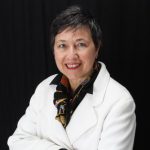 Monique
Monique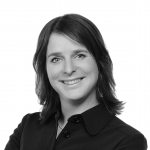 Janneke
Janneke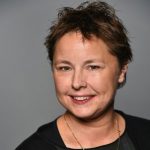 In her work,
In her work, 








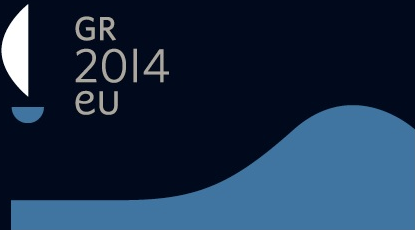

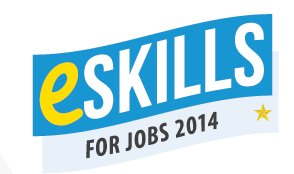
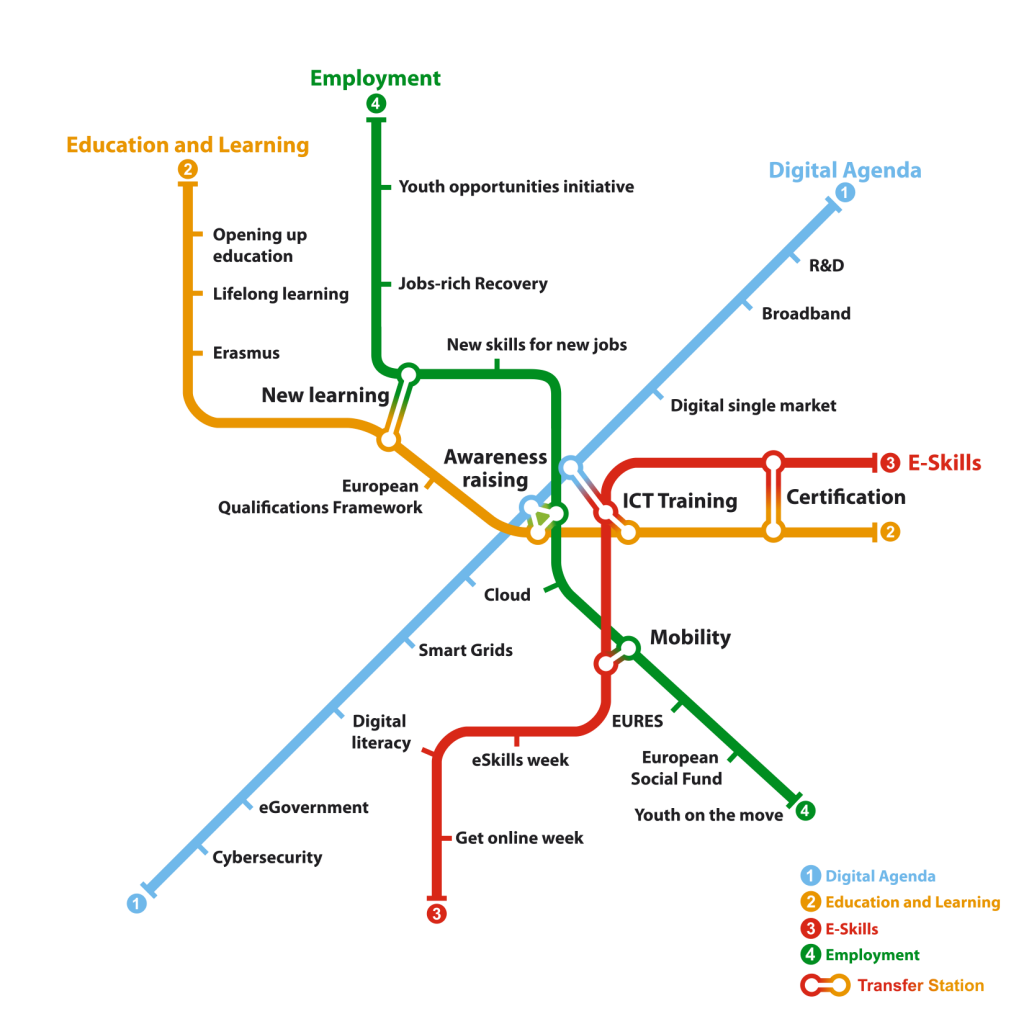 For questions or to become a partner or sponsor of the Ada Awards, please
For questions or to become a partner or sponsor of the Ada Awards, please